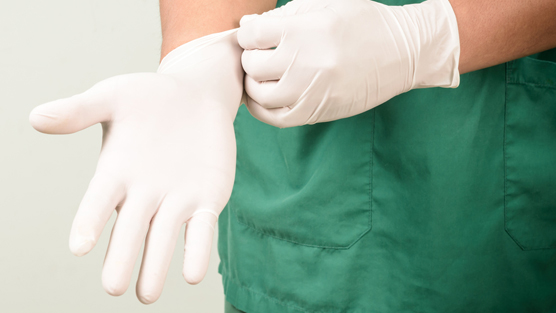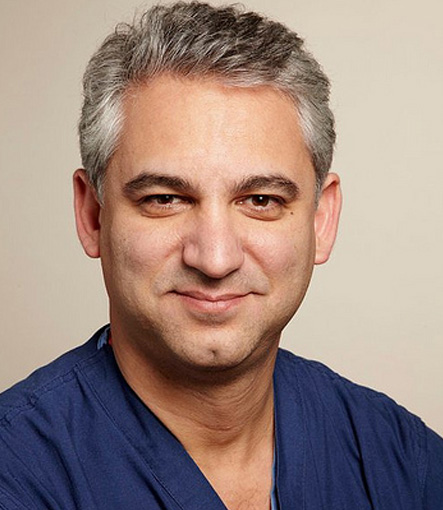Robotic Rectum May Help To Improve The Accuracy Of Prostate Exams
The use of a robotic rectum may help doctors and nurses to become more proficient in detecting prostate cancer. The new technology, which consists of prosthetic buttocks and rectum with built-in robotic technology, was developed by scientists at Imperial College London. The device is designed to help train doctors and nurses to perform rectal examinations by accurately recreating the feel of a rectum, as well as providing computer feedback on their examination technique. The device contains small robotic arms that apply pressure to the silicone rectum, to recreate the shape and feel of the back passage.
In addition, a computer screen behind the device displays a 3D model of the rectum and prostate, allowing the doctor, with the aid of 3D glasses, to see the anatomy while they perform the examination. The technology can also be programmed for different scenarios, allowing the anatomy to be changed each time, explained Dr Alejandro Granados, also from the Department of Surgery and Cancer at Imperial and who is leading the development of the robotic rectum. The technology, which is being presented at the Eurohaptics conference this week, is also now being adapted for use in gynaecological exams.
“We have already asked a number of doctors and nurses – including prostate specialists and cancer surgeons – to trial the technology. They commented on the great advantage of being able to alter the anatomy. The size and shape of the rectum and prostate can vary greatly from person to person, and this technology enables medics to practice their skills in many different virtual patients. They also observed that because these examinations are performed solely by feel, experiencing a realistic sensation is crucial.”
-Dr Alejandro Granados
A rectal examination is necessary in diagnosing conditions such as prostate cancer and involve a medical professional placing their index finger into the anus, and feeling the prostate. A rectal examination is often the first test a doctor or nurse uses in order to identify a problem with the prostate gland. The examination can also determine whether or not the patient will be sent for further testing. Generally, cancerous prostates tend to feel hard and knobbly, but learning exactly what a potentially cancerous prostate feels like can be difficult, explains Dr Fernando Bello, from the Department of Surgery and Cancer at Imperial College London.
“Internal examinations are really challenging to learn — and to teach. Because the examinations occur in the body, the trainer cannot see what the trainee is doing, and vice versa. In addition to this, medics rarely get the chance to practise the examination, as few patients would volunteer as practice subjects. In fact there is only one person registered in the country as a test subject, called a Rectal Teaching Assistant (RTA) in the UK. But the results of these examinations can have major implications for patients — they are very important for early diagnosis of various conditions such as prostate cancer.”
-Dr Fernando Bello
Researchers have completed a successful pilot study on 20 cancer surgeons and medical professionals. The team is now working towards building an affordable prototype for medical schools. Although each device may cost over £10,000 ($13,000), they say a more affordable option may be to use the finger pressure sensors and 3D software on traditional plastic models, to enhance existing training facilities. The device is being presented at the international Eurohaptics conference at Imperial, taking place 4-7 July.






